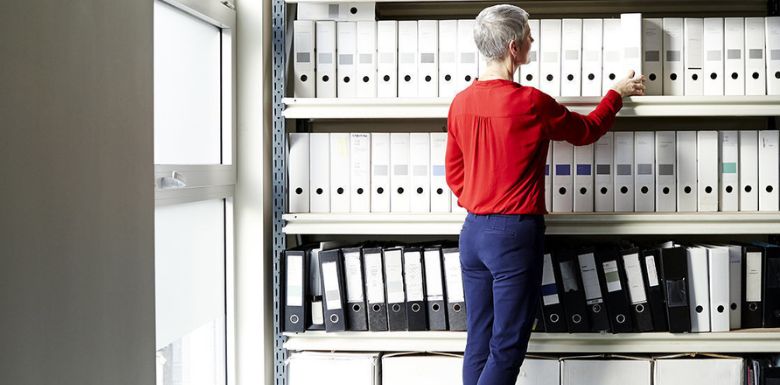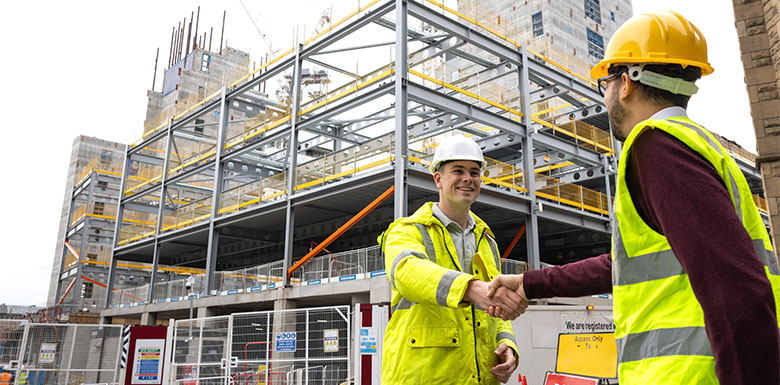What is a DBS check?
 In this article
In this article
As someone working in the trades, it goes without saying that you’re expected to operate your business in line with UK law – both to reassure customers that you’re a trustworthy trader and to avoid any potential criminal convictions that could result in hefty fines, reputational damage, or even the dissolution of your business.
However, while above-board practices and the right qualifications can go a long way towards proving your reliability to customers, in some cases, you may also be asked to complete what’s known as a DBS check.
Take a look at our guide below to learn more about what a DBS check is, as well as the different types, how long they take to complete, and when you might be required to fill one out.
What is a DBS check in the UK?
A DBS (Disclosure and Barring Service) check is a dedicated government process that’s designed to help employers determine whether or not an individual has a UK criminal record and is therefore suitable for hiring or joining a specific role, programme, or scheme.
How deep of a check you will be subject to will depend on the type of work or programme you intend to join, but at the very least, you’ll be expected to complete a basic DBS check if asked to do so.
Why would I need a DBS check as a trader?
While a DBS check might seem unnecessary for the role of an independent trader, acquiring even a simple one for yourself does come with benefits. For example, it can help to build further trust with potential customers by demonstrating to them that you operate within the bounds of the law and are safe to be working in their homes.
However, in some cases, a DBS check may be required to join certain trade bodies or schemes, or by a local authority Trading Standards team before you can begin working with them.
For example, here at Which?, we’ve partnered with a number of local authority Trading Standards teams as part of our Trusted Traders scheme, meaning anyone thinking of becoming a Trusted Trader will need to acquire a DBS check before working with any of the teams on our list.
What are the different types of DBS checks?
UK DBS checks can be categorised under four different types, each of which goes into varying levels of detail regarding outstanding and expired criminal convictions. We’ve outlined a general explanation for each type of DBS check below:
- Basic DBS – the simplest form of DBS check, a basic DBS will inform employers of any active legal convictions and conditional cautions a candidate may currently have.
- Standard DBS – a slightly more thorough DBS check, a standard DBS notes both active and expired convictions, as well as cautions, reprimands, and warnings.
- Enhanced DBS – a detailed form of DBS check, an enhanced DBS will show the same details as a standard DBS and any relevant non-convictional information deemed relevant by the DBS service for the position in question.
- Enhanced with Barred List DBS – a culmination of all three previous DBS checks, an enhanced with Barred List DBS includes the same information as an enhanced DBS check, as well as a check on one or more of the UK Barred Lists to see if a candidate has previously been barred from taking on the position they’re applying for.
Which DBS check do I need?
Which DBS check you need to complete will depend largely on the position and scheme you’re applying for.
For example, if you plan on completing a DBS check for yourself, then you will only be able to apply for a basic DBS. All other forms of DBS check must be applied for through the organisation you intend to work with, who will inform you of which DBS check to complete.
Who needs to complete a DBS check?
Assuming you’re a sole trader or the head of your company, it will be on you to complete a requested DBS check. On top of this, you may be asked to certify that your employees and subcontractors (assuming you have any) don’t have any unspent criminal convictions – to the best of their knowledge.
Please note, however, that in some cases, your employees or subcontractors may also be asked to complete a DBS check independently of you.
How much is a DBS check?
The price of a DBS check will vary depending on the type of check you’re required to fill out. Currently, a basic or standard DBS check can cost anywhere from £18 to £50, while an enhanced DBS check can cost up to £60.
Fortunately, while this might feel like an unwanted additional business payment, in some cases, the cost of a DBS check may be covered by the party applying for the checking process.
How long does a DBS check take?
The time required for a DBS check to be completed will vary for each application, depending on what information needs to be gathered and if any details you entered were incorrect.
Regardless, you can expect to receive your certificate within 1-14 days after sending your details. Please note, however, that there is no way to expedite the process – your check will take as long as required to complete.
How to get a DBS check
As we’ve already stated, if you want to apply for a DBS check yourself, you will only be eligible for a basic check, the details for which can be filled out online using the following relevant services:
- If you live or work in England or Wales you need to apply for a ‘Basic Check Certificate’ from the Disclosure and Barring Service (DBS). Please note that you must be 16 or over to apply.
- If you live or work in Scotland, you should apply for a ‘Basic Disclosure Certificate’ from Disclosure Scotland. Please note that you must be at least 18 years old to apply.
- If you live or work in Northern Ireland you should apply to AccessNI for a ‘basic check’.
From here, each option will guide you through the process of filling out the forms to ensure that all the information you need to share is accurate and up to date for a smooth certification process.
What do I need for my DBS check?
While certain higher-level DBS checks may require you to share additional information, a basic DBS check application requires the following documentation:
- Details of your recent addresses and the dates you lived there.
- Identification that shows your name, date of birth, and current address.
What if I already have a DBS certificate?
Although DBS certificates cannot expire, you may be required to apply for a fresh DBS check to ensure that all details listed on your certificate are up to date and that any new information can be added.
Stand out as a Trusted Trader
That’s everything you need to know about DBS checks, and why you might be asked to complete one as part of your work. A useful document to have to hand, you may very well find more work opportunities open to you once you’ve completed your application.
If you want to give your business some added credibility on top of your new DBS check, consider becoming a Which? Trusted Trader.
Only available to those traders who pass our rigorous vetting standards, customers know that Trusted Traders are reputable business owners who deliver high-quality work on every job.
Become a Trusted Trader
When customers see you displaying our logo, they'll know you're a trader they can trust
Find out more




